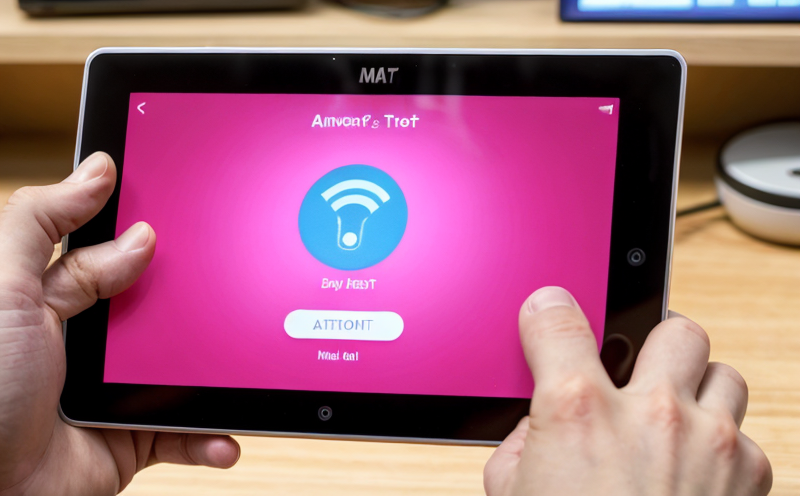Data Transmission Integrity Testing
Data transmission integrity testing is a critical component in ensuring that smart and connected consumer devices operate reliably and securely. In today's interconnected world, where IoT (Internet of Things) devices are becoming more prevalent, maintaining data integrity during transmission is paramount for user safety and satisfaction.
Consumer products, especially those with embedded sensors or wireless communication capabilities, are increasingly relying on seamless data exchange to function optimally. From smart home appliances to wearable technology, the quality of data transmitted between these devices directly impacts their performance. Ensuring that data integrity is maintained throughout the transmission process helps prevent issues such as corrupted commands, lost connections, and potential security vulnerabilities.
Data integrity testing typically involves simulating real-world conditions under which a device operates. This includes testing in various environments, with varying signal strengths, and through different types of networks (Wi-Fi, Bluetooth, etc.). The goal is to identify any discrepancies or failures in the data being transmitted between devices, ensuring that commands are accurately received and executed.
For quality managers and compliance officers, understanding these tests provides insights into how their products can be optimized for performance and reliability. R&D engineers benefit from this testing as it helps them refine product designs to ensure they meet stringent industry standards. Procurement teams also find value in such testing since it ensures that the components used within devices are capable of maintaining data integrity.
Compliance with relevant international standards is crucial for manufacturers looking to meet regulatory requirements and ensure their products perform consistently across different environments. The following sections will delve into the specific aspects of this service, including the applied standards, benefits, use cases, and frequently asked questions.
Applied Standards
| Standard | Description |
|---|---|
| ISO/IEC 14843-5 | Provides guidelines for the evaluation of the security properties of embedded systems, including data integrity. |
| EN 302 645:2018 | Covers the performance and interoperability testing requirements for wireless interfaces in IoT devices. |
| ASTM E2794-18 | Details the procedures for assessing data integrity during transmission of information technology systems. |
| IEC 62751 | Focuses on the security and privacy aspects related to wireless communications in consumer products. |
The above standards provide a framework for ensuring that data transmission integrity testing is conducted thoroughly. Compliance with these standards not only guarantees adherence to regulatory requirements but also enhances customer trust by demonstrating commitment to product quality and safety.
Why Choose This Test
Data transmission integrity testing is essential because it ensures that smart and connected consumer devices operate reliably and securely. By simulating real-world conditions, this service helps identify potential issues early in the development process or during production, allowing for timely corrections.
- Reliability: Ensures consistent performance across different environments and network types.
- Security: Helps prevent data corruption and unauthorized access to sensitive information.
- User Satisfaction: Enhances the overall user experience by reducing errors and improving device functionality.
Data integrity is a key factor in maintaining trust between manufacturers, retailers, and consumers. It ensures that products meet high-quality standards and comply with international regulations. By choosing this testing service, clients can rest assured knowing their devices are robust against common challenges faced during data transmission.
Use Cases and Application Examples
- Smart Home Devices: Ensuring that commands sent from a smartphone app to a smart thermostat or door lock are received correctly without any delays or corruption.
- Wearable Technology: Verifying that health data transmitted between a fitness tracker and a central application is accurate and consistent.
- Automotive Electronics: Confirming that vehicle diagnostics software communicates seamlessly with diagnostic tools, ensuring timely maintenance alerts.
- Smart Appliances: Guaranteeing that control signals from an app to a washing machine or refrigerator are executed without error.
In each of these cases, data integrity testing plays a vital role in maintaining the functionality and reliability of smart and connected consumer devices. This ensures that users have confidence in their products' performance and security.





